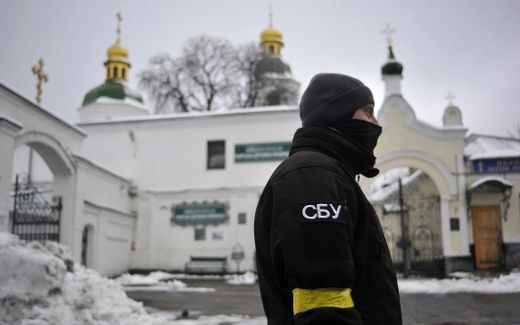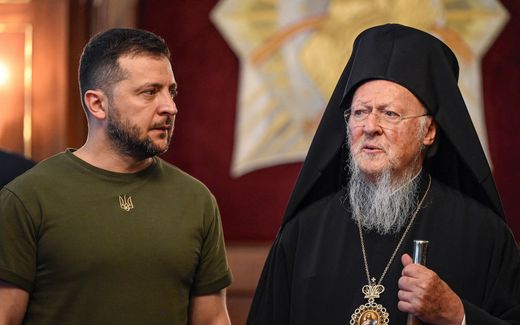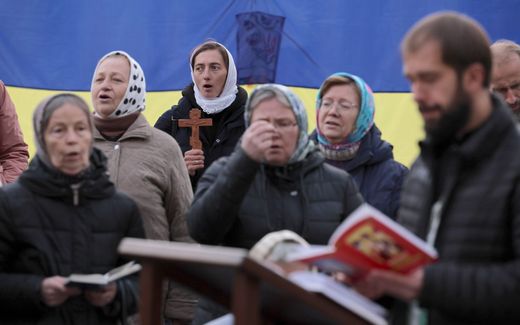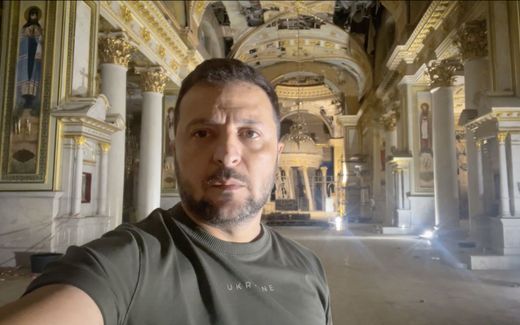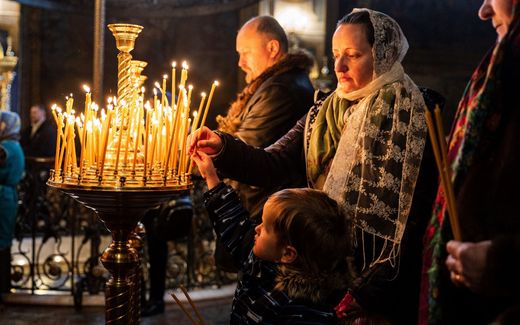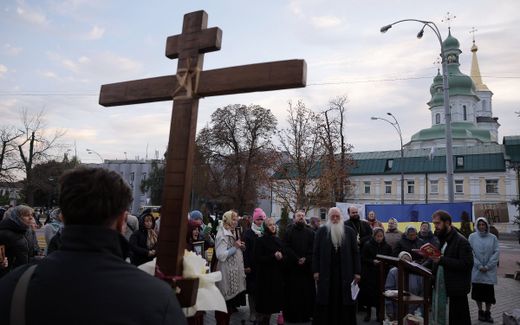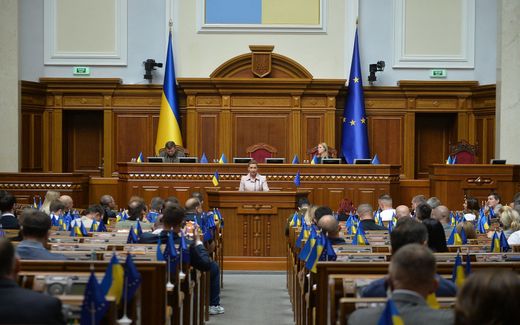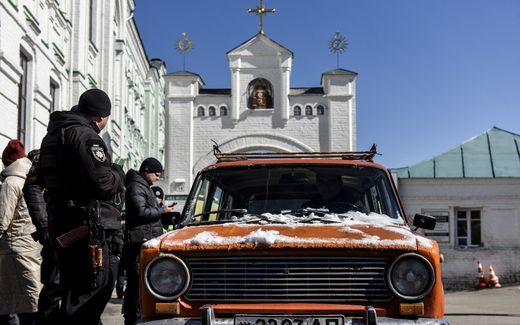This is what awaits the Ukrainian Orthodox Church once a ban is fully implemented
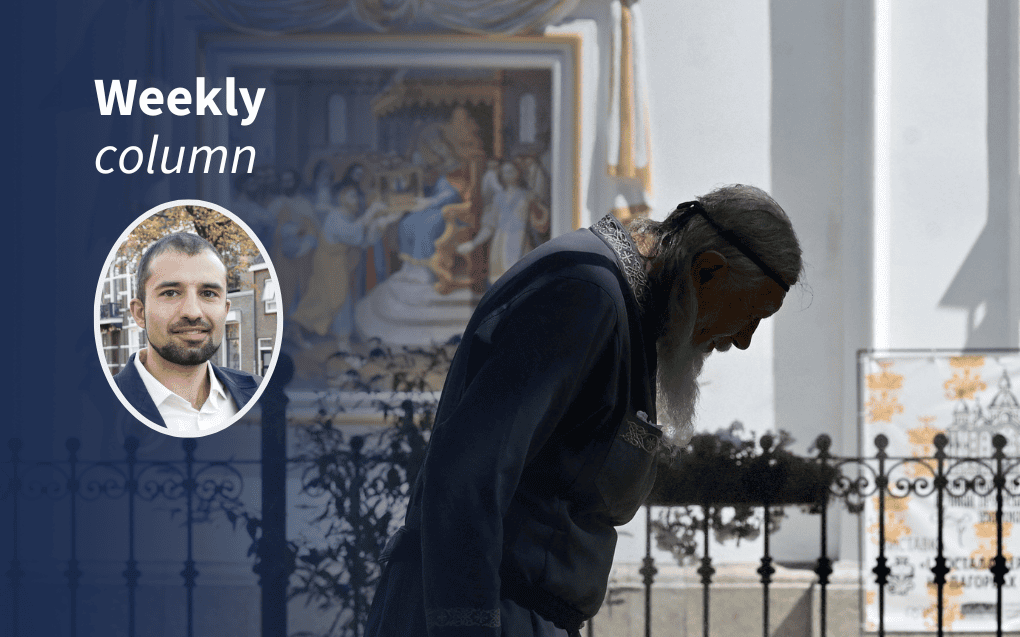
Photo Canva.com, AFP, Sergei Supinsky
Christian Life
How is the situation of religious freedom in Ukraine? In his previous column, Oleksii Blyzniuk underlined the dilemma of a ban on the Ukrainian Orthodox Church for its ties with Russia. Now, this ban has come into force. What does that mean?
In total, 11 draft laws were registered in the Verkhovna Rada of Ukraine regarding the prohibition or restriction of the activities of foreign religious organisations and their branches.
The adopted draft law №8371 ("On the Protection of the Constitutional Order in the Sphere of Religious Organisations") was introduced at the beginning of 2023. Despite the dilemmas and lengthy discussions, on August 20, 2024, the Verkhovna Rada banned the activities of the Russian Orthodox Church and its affiliated organisations, such as the Ukrainian Orthodox Church of the Moscow Patriarchate (UOC-MP). Four days later, the president signed the law, and on September 23, it came into force.
The law specifies that the activities of foreign religious organisations in Ukraine are prohibited if they:
Have their governing centre located in an aggressor state;
Support armed aggression against Ukraine.
Stay up to date with Christian news in Europe? Sign up for CNE's newsletter.
Has the UOC-MP broken ties with the ROC?
This law does not automatically ban the UOC-MP. Moreover, after the start of the war, the UOC-MP removed the MP (Moscow Patriarchate) prefix. It declared that it should not be associated with Russia and is not the same as the Russian Orthodox Church (ROC).
Interestingly, the MP prefix was present in the UOC's statutes until May 2022. However, on May 27, 2022, the UOC council removed all provisions hinting at ties with Moscow from the Statute on the Administration of the Ukrainian Orthodox Church. Additionally, changes were made to grant the UOC administrative and canonical independence, allegedly separating it from the Moscow Patriarchate. At the same time, the "MP" prefix disappeared from the organisation's name.
But has the UOC-MP truly severed ties with the ROC? The State Service of Ukraine for Ethnic Policy and Freedom of Conscience (SEFC) conducted an analysis. The commission's experts evaluated the status of the UOC as stated in its Statute, specifically the wording "independent and self-governing."
The experts noted that in Orthodox canonical law, there is no such concept. When referring to church independence, the terms "autocephalous" or "autonomous" are used. Only an autocephalous church is fully "independent in governance," confirmed by receiving a tomos, a corresponding document. The absence of this document is a key indicator of a subordinate religious organisation.
The ROC Statute defines the UOC as part of the Moscow Patriarchate, "self-governing with broad autonomy," meaning that the ROC still considers the UOC a structural unit. A separate chapter in the ROC Statute confirms this, which was approved by the UOC bishops at the ROC Bishops' Council in December 2017. This claim was neither refuted nor challenged at the UOC Council on May 27, 2022.
There are no documents issued by the governing bodies of the ROC that would confirm the UOC's autocephalous or autonomous status. Moreover, all statements and declarations by UOC leaders and representatives about "independence" or "self-governance" fully align with the current edition of the ROC Statute, which defines the UOC as a structural unit of the ROC. Therefore, it seems like the UOC has been unable to break free from its subordination to the Russian Orthodox Church despite its name change and amendments in its statutes.
Russian passport
In addition, it is interesting that UOC-MP Metropolitan Onufriy and more than 20 other clergymen of the church hold Russian citizenship. The UOC-MP called this information "false and manipulative," stating that Metropolitan Onufriy has been a Ukrainian citizen since birth and does not hold passports from other countries.
Later, Metropolitan Onufriy admitted that he had held a Russian passport but claimed he "was never interested in it" and renounced Russian citizenship after Russia's invasion of Ukraine. Nonetheless, journalists later confirmed that Metropolitan Onufriy still holds a valid Russian passport.
Moreover, an interesting fact remains. As soon as the occupying army enters any Ukrainian territory, the UOC somehow automatically turns into the ROC in those territories. Thus, with the adoption of the new law, the UOC has a perfect opportunity to prove that it has severed all ties with the ROC. The law provides a specific procedure according to which all churches and other religious organisations with any ties to the aggressor state have nine months from the date the law comes into force to break those ties.
What will happen next?
If there are suspicions that a certain church is connected to the ROC, a special state commission will conduct an examination. In case signs are found that confirm subordination to the Russian church, a lawsuit will be filed to cease the activities of the religious organisation. This lawsuit can be challenged in court. However, as was mentioned before, such lawsuits can only be filed nine months after the publication of the law. Currently, the regulatory framework is being developed, and churches have time to sever their ties with the ROC.
Additionally, the Cabinet of Ministers has 3 months from the publication of the law to develop the regulatory framework. Within six months, measures must be taken to reclaim state property from legal entities whose owner or participant is a foreign religious organisation whose activities have been banned in the country.
This will allow the state to reclaim architectural monumental churches, as the lease agreements will be automatically terminated a few months after the amendments are approved. This is a significant step, as currently, almost three thousand UOC communities in Ukraine are using historical churches.
Thus, it seems that the state has somewhat resolved the issue of the activities of the pro-Russian church in Ukraine. However, the real action will begin after nine months, when the hottest phase of this entire process starts. I believe that we are in for many high-profile scandals and court cases which will drag on for years to come.
Related Articles


